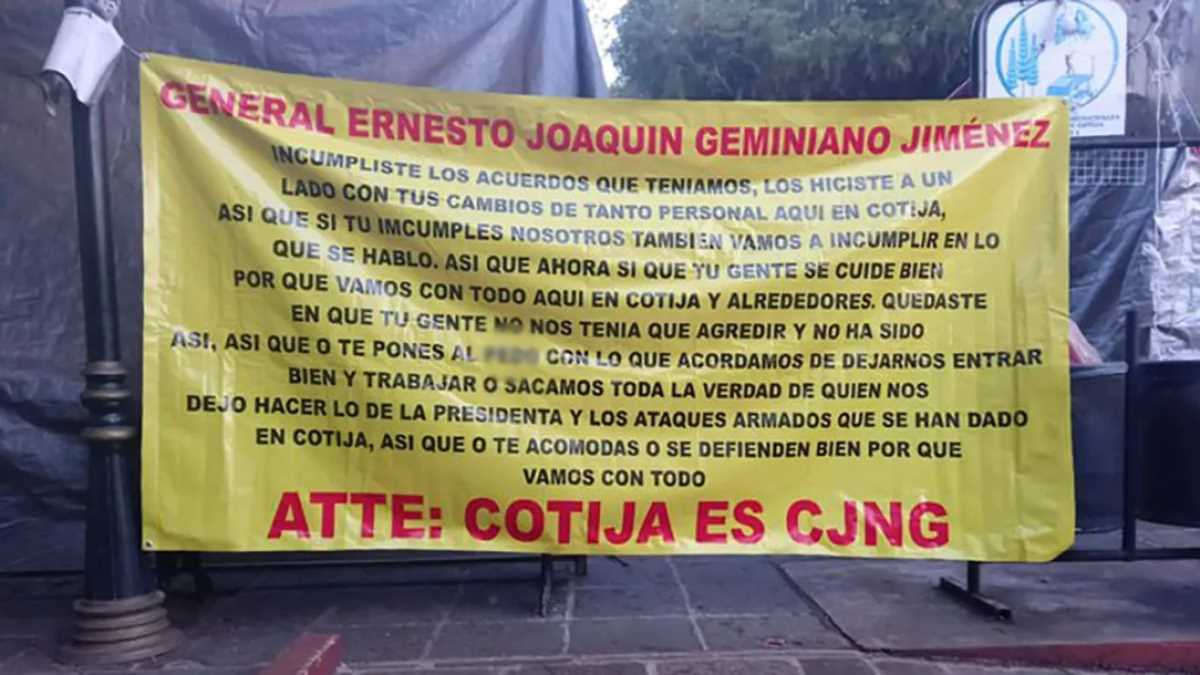Mexican Cartel Issues Chilling Threat to High-Ranking Military Official in Michoacán
CJNG threatens high-ranking military official in Michoacán. Cartel accuses general of breaking agreements related to their presence in Cotija. Mayor of Cotija, Yolanda Sánchez Figueroa, murdered in June.

In a shocking display of defiance, the Jalisco New Generation Cartel (CJNG) has ramped up its violent campaign in the municipality of Cotija, Michoacán, making brazen threats against high-ranking military officials and engaging in multiple deadly attacks. The cartel, notorious for its ruthless tactics, chose Cotija’s main square as the stage for its latest intimidation, unveiling a narco-banner aimed at General Ernesto Joaquín Geminiano Jiménez, a key figure in the National Defense Secretariat (Sedena), accusing him of reneging on agreements concerning their expansion into the region.
The threatening banner, signed by the CJNG, directly referenced General Jiménez, who has been the commander of the 21st Military Zone, based in Morelia, since May 2024. The bold accusation hints that the cartel had struck a deal with the military leader that would permit their unhindered entry into Cotija, a municipality at the crossroads of the conflict between various criminal factions. But, according to the CJNG, these alleged agreements have not been honored. Their message was clear: "Either you get down to business with what we agreed to let us in and work properly, or we will reveal the whole truth."




